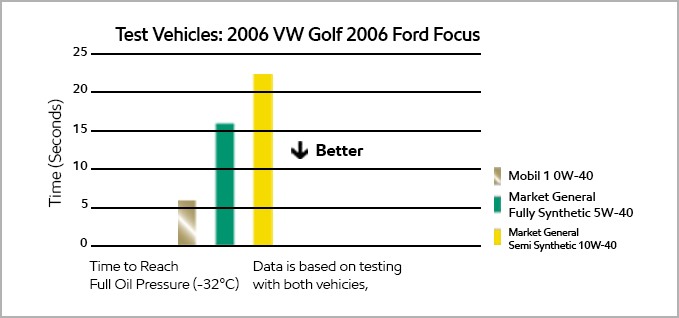Noticeably quicker turnover at cold temperatures with the 0w. Maybe even less valvetrain noise, but I can't quantify that.
Sorry, but *I* don't know what *I* am experiencing? You're off base there my friend. I submit that *you* don't know what *I* am experiencing.
If you've started a car at low temperature you may have noticed how it cranked more slowly and the starter had to work harder than when started when it's hot out.
With a 0w as opposed to a 5w, the vehicle cranked faster. This was with the same battery (why you mentioned that in this discussion I'm sure I don't know), the same brand and tier of oil filter, at the same temperature. I lived in Northern Montana, and temps there did get down below -15F frequently in the winter so I have that 4-1/2 years of experience to back up my assertions.
+15°F was approximately the temperature I started to notice a difference in cranking between a 5w and a 0w. So, even though a 0w will [flow, be pumpable, meet the standard, choose terminology that works for you] at a lower temperature than a 5w, it still offers some reduction in startup friction as temperatures rise, up to a point.
Will a 5w serve in Michigan? Probably with no issues, even when it gets really cold. But for ease of starting, less battery and starter wear, I'd choose a 0w if there were going to be more than a few below zero F starts in the winter.



